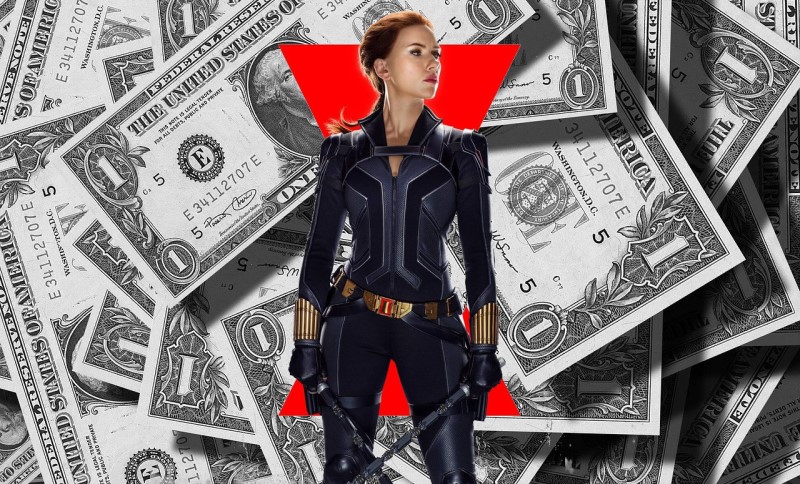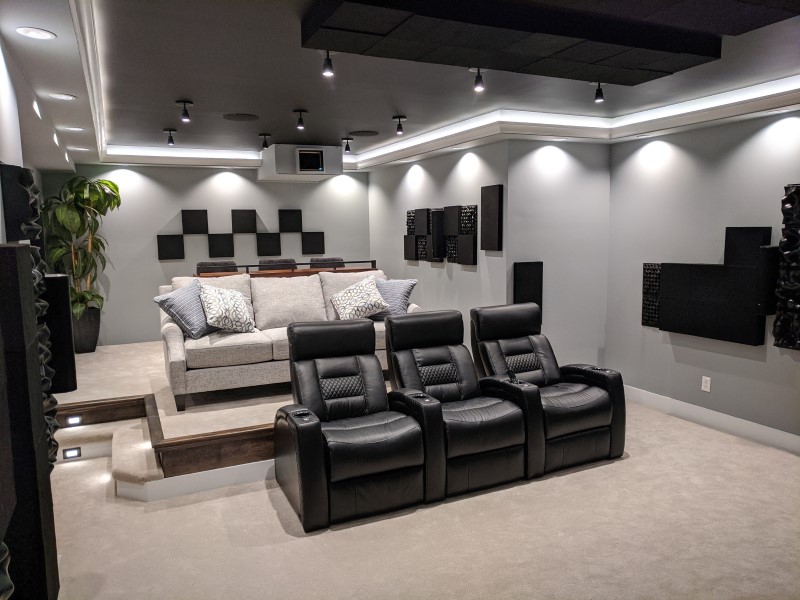Theater Owners Release Tone-Deaf Response About Black Widow
Theaters have always resisted any attempt from studios to encroach on their theatrical release window. Even with a pandemic raging, theater owners pushed back against all moves that would include day-and-date streaming. Last week, Black Widow was held up as a model for what future theatrical releases can be. Day-and-date release on Disney+ hand-in-hand with the biggest box office pull since before the pandemic. But, any chink in the performance and you could bet that theaters would blame the streaming service. And they have (PDF). NATO (The National Association of Theatre Owners) had a lot of boogymen to point at in their press release. Let’s look at their “evidence” one by one.
Second Week Box Office Numbers
The first (and really only) thing the theater owners are worried about is money. And Black Widow’s second weekend wasn’t great. The first weekend was $80 million with the second $26 million domestic. That’s a drop of 67% and one that the theater owners say shouldn’t have happened.
…a weaker than expected opening weekend, and a stunning second weekend collapse in theatrical revenues. Why did such a well-made, well-received, highly anticipated movie underperform?
Notice that they aren’t just complaining about the second weekend, but the first. What they based these box office expectations on is never delineated. There is no consideration for how the pandemic is affecting whether people want to go to theaters. That word-of-mouth may be keeping people from the theaters (if people didn’t like the movie so much). A 67% drop isn’t great but it also isn’t unheard of. I saw Black Widow and didn’t love it. It was okay, but not something I run out to see twice.
That’s not enough for the theater owners. They just seem to think that Black Widow should have done better. Why? Because of the streaming numbers.

Streaming = Piracy
Their next point is that streaming gave pirates access to a more pristine copy of the movie. They claim that movies that didn’t have day-and-date releases didn’t see the kind of piracy Black Widow has experienced. They list A Quiet Place II and F9 as examples. Hilariously, A Quiet Place II was the number one torrented movie the week before Black Widow and was number three on the list the week Black Widow was released.
Their point is that getting a good copy of a first-run movie is hard. If you’ve ever traveled overseas, you’ve probably ended up in a bar that was showing a movie that was obviously pirated using a camcorder or phone. The quality is crap and theater owners claim that this increase in quality will keep those that pirate movies from seeing them in the theaters.
There is evidence that piracy hurts box office sales (PDF). While there can be some word-of-mouth and marketing benefits from piracy, the deleterious effects have been well documented. The problem is that the theater owners are claiming, with no evidence, that the Disney+ service is somehow making this worse, or their increased quality more effective. There is no data to suggest such and there is no way they could know that so quickly.
The site they show as evidence lists rankings of movies torrented, but not raw numbers. Sure, a movie could be the most torrented movie that week, but how many downloads are we talking about? How many unique downloads? Were the movies actually watched? Were the files labeled “Black Widow movie” really the movie, or were they viruses in disguise? We don’t know. And neither do the theater owners.
Streaming is Robbing Peter to Pay Paul
Additionally, theater owners make the assertion that the Disney+ streaming service in general, and the day-and-date release specifically isn’t “new” money:
It ignores that Premiere Access revenue is not new-found money, but was pulled forward from a more traditional PVOD window, which is no longer an option.
They are saying that Premium Video on Demand (PVOD) window is only being pushed up by Disney releasing Black Widow on Disney+ earlier. Again, there is no evidence given on how they can know that. First, this is something that has almost never been done before, definitely not with a movie with the clout of a Marvel movie. Second, there is no evidence that people won’t decide to sign up for Disney+ just because Black Widow becomes free to stream on the service. Lastly, if Disney allows other PVOD services to offer the movie, they can’t know how successful it will be.

People Should Have to Go to a Theater, Pandemic be Damned!
The most tone-deaf part of the theater owner’s response was them suggesting that people should have to go to theaters so that they (and Disney) can make more money.
The average number of people per household in the U.S. is 2.37. One can assume the family-oriented Disney+ household is larger. How much? How much password sharing is there among Disney+ subscribers? Combined with the lost theatrical revenue and forgone traditional PVOD revenue, the answer to these questions will show that simultaneous release costs Disney money in revenue per viewer over the life of the film.
These “questions” are little more than scare tactics. They can’t know the answers to any of them and can’t say for certain that there was actually any lost theatrical or any other type of revenue.
People went to the theaters with Covid numbers on the rise and a new, more contagious, and dangerous Delta variant out there. And yet, the theater owners can only think about how more people would have gone to the theaters if not for Disney+.
Really?
There are lots of families out there that feel they can’t go to theaters. We have a son that is under the age of vaccination so we aren’t taking him anywhere. Thinking that they could “force” people to go to the theaters with a pandemic still going on is the worst kind of tone-deaf. It says what theater owners are desperately trying NOT to say: That they care more about money than the lives of their patrons.
Can’t We Think about the Theater Owners?!?
Honestly, no matter what happened with Black Widow, theater owners were going to find a way to spin it to slam Disney+. It could have made ALL the money and they would have found a reason to claim that it could have made more. Because, in the end, they are dedicated to keeping things the same. Any change to how movies are released and they believe that theaters will become irrelevant.
Umm…my dude…they already are.
Blockbuster refused to acknowledge that streaming was going to be the future and they went extinct. Movie theaters are currently in the same position. They see the change going on around them and can only see how they can’t remain viable if it continues.
No one is arguing that. What we are suggesting is that either you evolve, or die.

It’s Time to Change
Movie theaters have been becoming less and less relevant in past decades. Home theater gear has come down in price and has become easier to set up. You no longer have to be an enthusiast to have a great home theater. A few hours of research online and you can find just about everything you need to set up a decent home theater. Movie theaters fear this. They know that their big draw is the big picture and big sound. If you can get that at home, why would you pay the prices the theaters’ demand?
We’re still waiting for that answer.
The pandemic has accelerated a lot of change in society. Companies that never would have considered allowing people to work from home are now embracing that work style. Everyone knew what Netflix was before the pandemic, but now we have more streaming services with more options. And we’ve all used streaming a lot more than we ever thought we might while locked in our houses.
The world has changed. Movie theaters look at that change as a threat when they should be looking at it as an opportunity.
The Future of Theaters
Movie theaters have to adapt if they want to stay relevant. There will always be people that want to see a movie on a big screen. Fewer and fewer as time marches on, but there will be a market. But movie theaters are unique spaces. They are huge rooms in places that normally don’t have such big, open spaces.
Theaters don’t have to just show movies. They could be used for streaming live events. Want to watch the big game (for whatever season you’re in)? Maybe your local cineplex is streaming it. Live New York theater? Surely that could be streamed as well. You get the picture.
The first indoor climbing gym I ever visited was a converted movie theater. During the pandemic, movie theaters rented out their spaces for groups to watch movies or hold meetings. An inventive person could look at the space of a traditional theater and come up with a use that we might not even imagine.
We don’t pretend to have the answers. But trying to keep the status quo in how movies are released is a losing proposition. We have been headed in this direction for a long time. If theater owners don’t want to change, they should expect things to get harder and harder.
We didn’t really want Blockbuster to go away (Red Box just has such a lousy selection most of the time), but it was out of our hands. We’d like the theaters to stay around in some form. Getting together with a bunch of people every once in a while to see a movie reminds us of why we like our home theaters so much. And that’s worth something.


